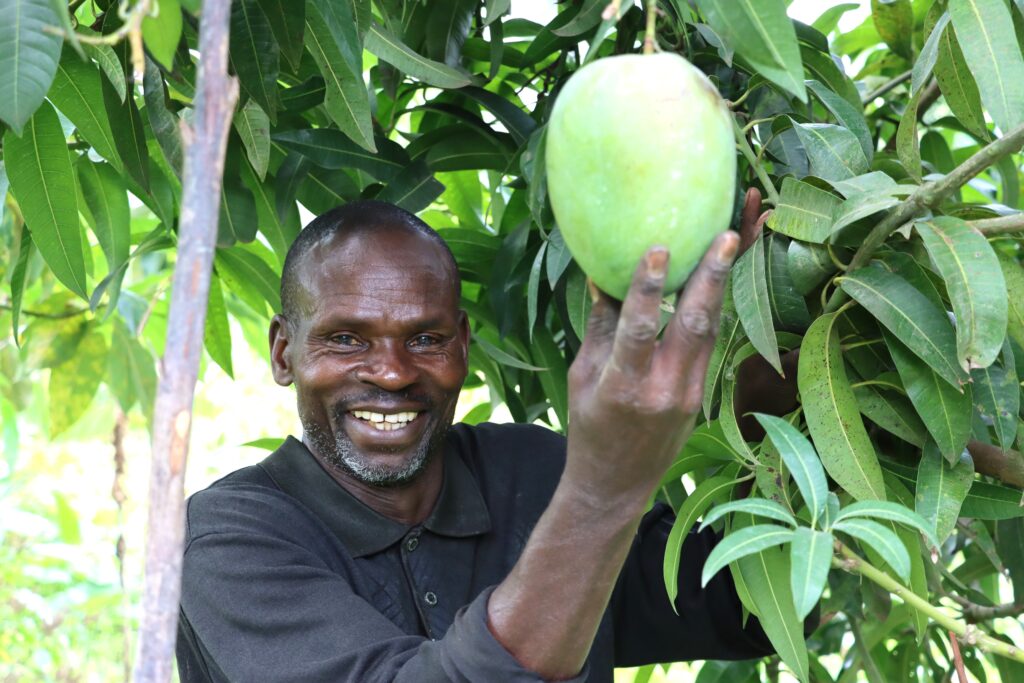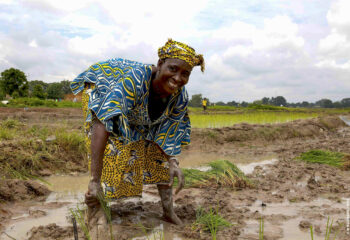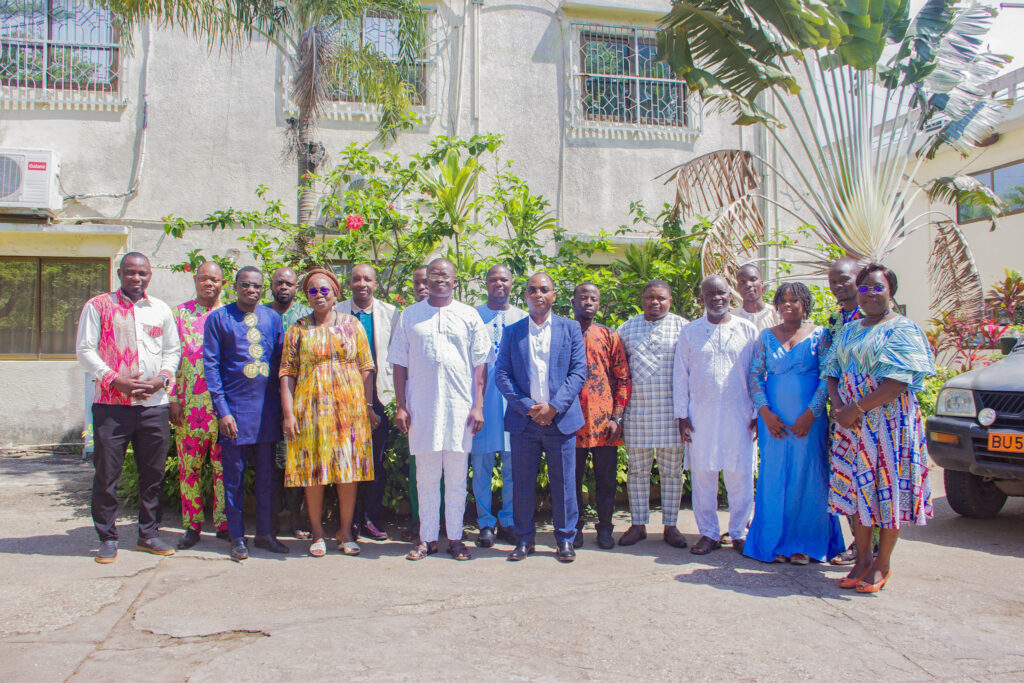
On October 10 in Cotonou, Benin, IFDC hosted a national workshop to launch the study “Mapping Green Job Opportunities for Youth in Emerging Agri-Food Value Chains in Benin” as part of the Integrated Nutrient and Land Use for Climate-smart and Durable Ecosystems (INCLUDE) research program “Green Jobs for Youth in a Just Food Systems Transition in Africa.”
Funded by the INCLUDE program, this research is being carried out by IFDC in collaboration with Benin’s Ministry of Agriculture, Livestock, and Fisheries (MAEP). The study aims to analyze and promote youth access to employment opportunities in sustainable agri-food value chains in Africa.
“Our focus is clear… We will map opportunities, required skills, and conditions for economic and environmental sustainability.”
Adodo Abalo, IFDC Country Director for Benin and Togo
The workshop presented the context, objectives, methodology, and expected results of the study while gathering contributions and perspectives from key stakeholders. The event brought together representatives from governments, technical and research institutions, the private agriculture sector, and farmers’ organizations.
Together, they laid the foundations for an ambitious collaboration to ensure the success of the INCLUDE study.
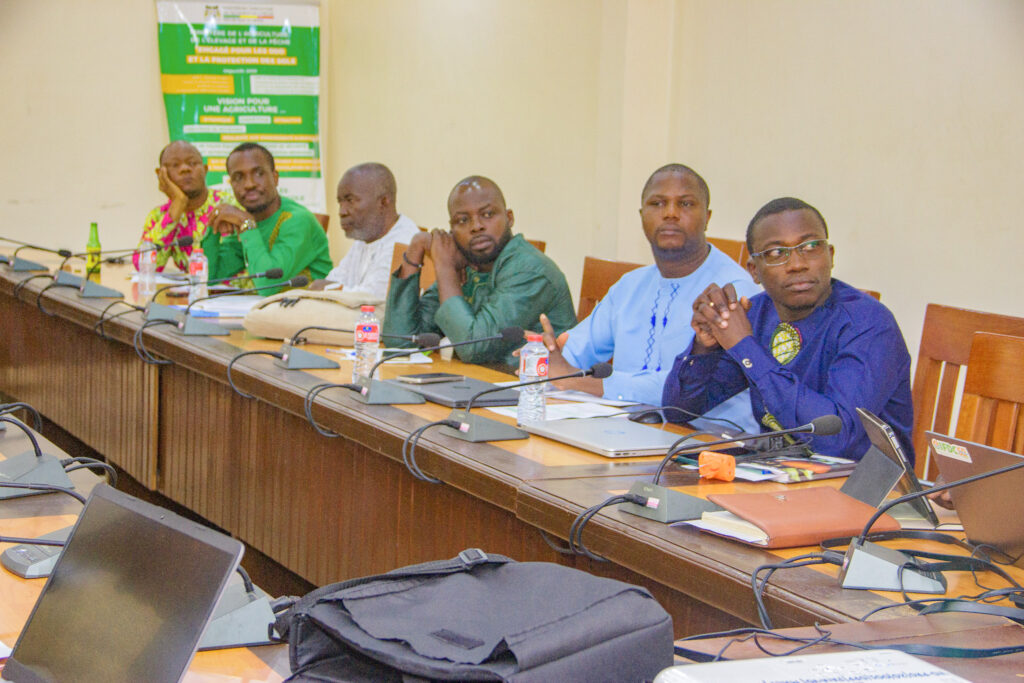
In his opening remarks, Adodo Abalo, IFDC Country Director for Benin and Togo, reiterated the importance of this new step in ongoing joint efforts to transform Beninese agriculture: “Why this study? To shed light, with supporting evidence, on where and how to create decent green jobs for young people. To guide public and private decisions rooted in the reality of the territories.”
He further explained what the study will achieve: “Our focus is clear… We will map opportunities, required skills, and conditions for economic and environmental sustainability.”
Abalo emphasized that the study is based on a co-construction approach, reliable data, transparent methods, a focus on young people and women as drivers of innovation, and alignment with national priorities and local dynamics.
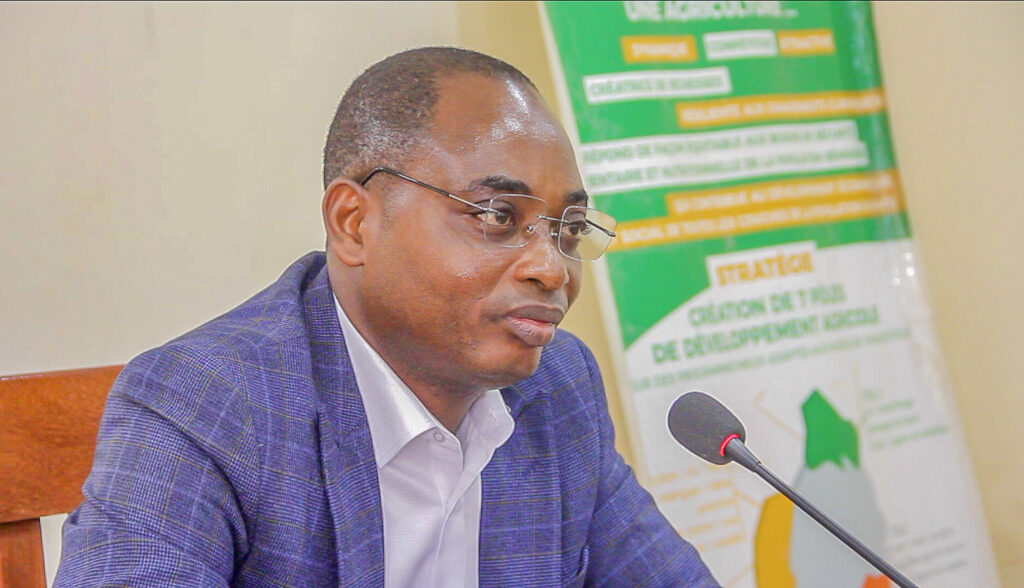
Representing Justin Edah, the Director of Financial Administration Planning (DPAF) at MAEP, Dr. Anselme Tchetangni, Agroecology Expert at MAEP, welcomed the partnership and urged participants to be fully involved.
“A lot of effort must be made… to contribute to improving the methodology and data collection, in order to improve opportunities for young people in green jobs,” he remarked.
The launch workshop enabled participants to better understand the philosophy behind the study and to discuss their expectations. Several group discussions facilitated the co-construction of an operational plan, ensuring both national and local ownership of the program.
The meeting also served as a springboard for identifying and reformulating the elements necessary for effective study implementation in a dynamic of continuous learning and shared accountability.
By actively participating in the launch workshop, stakeholders reaffirmed their commitment to supporting a more competitive, resilient, and inclusive Beninese agriculture sector. Abalo reinforced this shared commitment when he concluded: “Together, we can transform the way we use our land, not only to feed today’s populations, but also to preserve tomorrow’s fertility.”

